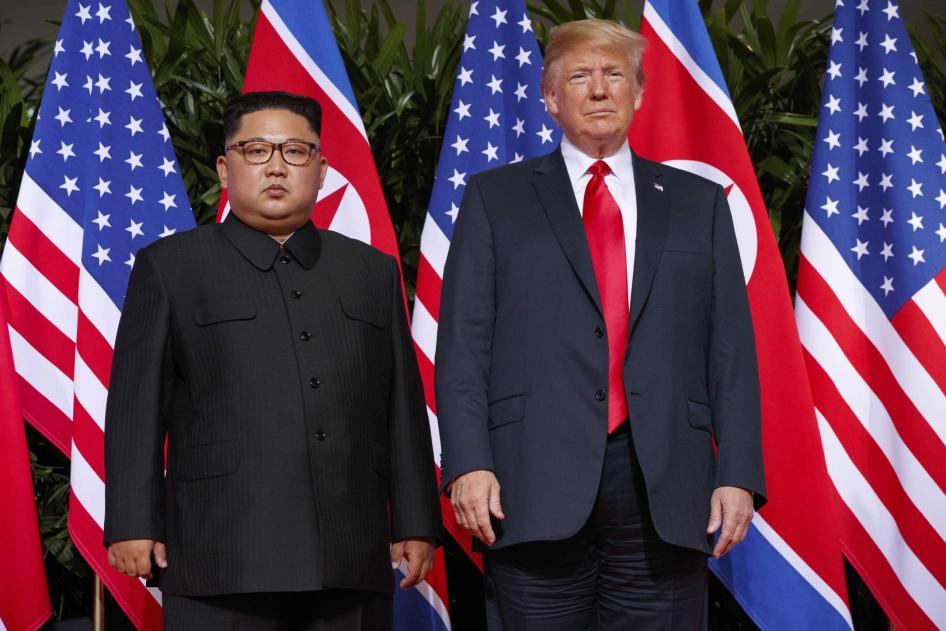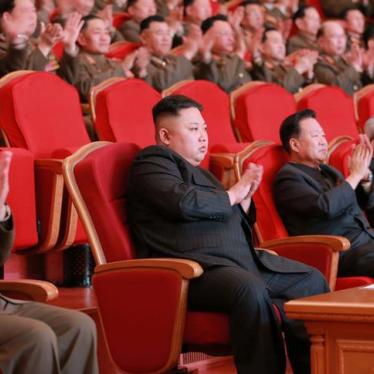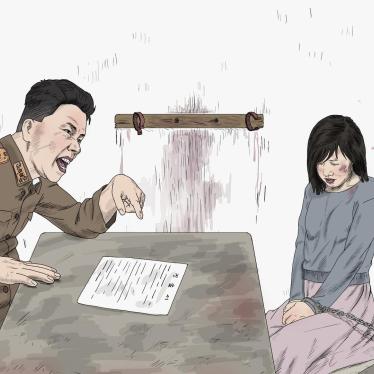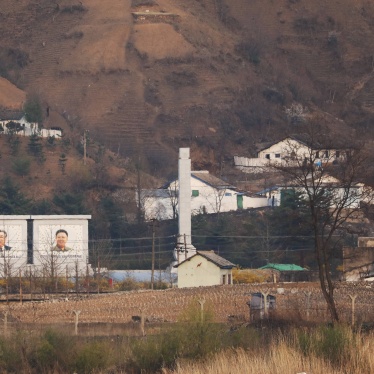(Seoul) – The summits between the North Korean leader Kim Jong Un and the United States and South Korean presidents, and increased international re-engagement, have failed to address human rights concerns about North Korea, Human Rights Watch said today in its World Report 2019. North Korea remains one of the world’s most repressive countries.
North Korea violates people’s rights in systematic ways. The government fails to protect or promote the rights of numerous at-risk groups, including women, children, and people with disabilities. The government uses forced labor from ordinary citizens, including children, to control its people and sustain its economy.
“As the world meets and greets the North Korean dictator Kim Jong Un, no one should forget they are dealing with a government that extracts fearful obedience based on torture, executions, sexual violence, forced labor, and gulag death camps,” said Phil Robertson, deputy Asia director at Human Rights Watch. “Since the voices of the North Korean people are silenced, it falls to the world community to make sure demands to protect human rights are placed at the center of all international dealings with Pyongyang.”
In the 674-page World Report 2019, its 29th edition, Human Rights Watch reviewed human rights practices in more than 100 countries. In his introductory essay, Executive Director Kenneth Roth says that the populists spreading hatred and intolerance in many countries are spawning a resistance. New alliances of rights-respecting governments, often prompted and joined by civic groups and the public, are raising the cost of autocratic excess. Their successes illustrate the possibility of defending human rights – indeed, the responsibility to do so – even in darker times.
In their day to day lives, women in North Korea frequently face sexual and gender-based violence by government officials, as they work in local markets (jangmadang), take trains and other forms of public transportation, and deal with police and other security officials, including in detention facilities. “Market guards or police officials could ask me to follow them to an empty room outside the market, or some other place they’d pick,” said Oh Jung Hee, a former trader in her 40s from Ryanggang province who left the country in 2014 and said she had been sexually assaulted many times. “They consider us [sex] toys. We [women] are at the mercy of men.”
North Korea restricts almost all civil and political rights, despite having ratified the International Convention on Civil and Political Rights. Restrictions on basic liberties include barring freedom of expression, religion and conscience, and assembly and association. It also prohibits any organized political opposition, independent media, independent organizations, or free trade unions, and severely punishes anyone who attempts to organize associations outside of government control. North Korea’s judicial system is totally controlled by the ruling Workers Party of Korea and the government. The government uses torture in custody, forced labor in detention facilities that resemble gulags, and public executions to maintain fear and control over the populace.
The government imposes tight restrictions on unauthorized cross-border travel to China, collaborates with Chinese authorities to capture and return North Korean refugees, tortures and incarcerates those who leave North Korea without permission, and punishes North Koreans for making unauthorized contacts with the outside world.
As a matter of policy, North Korea refuses to cooperate with the Seoul office of the Office of the High Commissioner of Human Rights or the United Nations special rapporteur on the situation of human rights in North Korea, Tomas Ojea Quintana.
Governments around the world have continued to press North Korea to acknowledge and act on the findings of the 2014 UN Commission of Inquiry report on human rights in the Democratic People’s Republic of Korea. The commission found that the government committed crimes against humanity, including extermination, murder, enslavement, torture, imprisonment, rape and other forms of sexual violence, and forced abortion. Pyongyang continually denies the findings.
On March 23, 2018, the UN Human Rights Council adopted without a vote a resolution emphasizing the need for advancing accountability mechanisms to ensure eventual prosecution of North Korean officials responsible for crimes against humanity. On December 17, the UN General Assembly adopted a resolution without a vote condemning the human rights situation in North Korea.
“With its totally authoritarian rule, cemented by the terror people have of their government, North Korea remains one of the toughest challenges facing the UN’s human rights framework,” Robertson said. “It is crucial for the US, the EU, and other governments to escalate their efforts to hold Kim Jong Un and his senior officials accountable for their egregious human rights crimes.”







